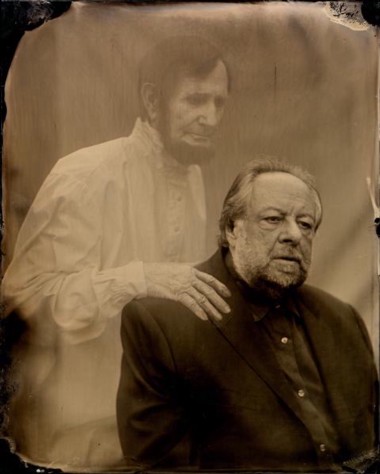It may seem self-serving to say it, but a good critic is a special thing. For some people, the critic is the most familiar name in their local paper, a trusted neighbor (if they share similar tastes) who always happens to have an inside line on something of note: a rich new novel, a restaurant that’s still undiscovered, a museum show you would have otherwise overlooked. And, of course, they talk about film.
The already-missed Robert Ebert was for many the epitome of good American criticism: open-minded and clear-eyed, he helped generations of moviegoers understand their own tastes without ever seeming to talk down to them. And although his work took him around the world, he remained a local hero, founding near his Illinois hometown a film festival devoted to screening pictures Ebert felt were overlooked each year by distributors or theaters.
This Friday, Amherst Cinema helps pay tribute to the man and his work when it presents Critically Acclaimed: An Evening With The Critics. Billed as “a cinephile’s dream evening,” the live broadcast event brings together four well-known voices of modern criticism for an evening of shop talk. Sharing the stage at the Bryn Mawr Film Institute, the group will not only discuss the future of criticism in a changing film world; they will actually demonstrate their craft—each critic will revisit a favorite film review, while the other three offer their own takes on the work. In an arena where (Siskel & Ebert notwithstanding) most critics work in solitude, the conversational format promises to provide the spark and levity of sharp minds at work.
Taking part in the panel are New York Times film critic A. O. Scott; longtime Entertainment Weekly writer and past chair of the New York Film Critics Circle Lisa Schwarzbaum; and Philadelphia Inquirer writers and book authors Carrie Rickey and Steven Rea. It’s a rare chance to peek behind the curtain. I once had a journalism student interview me about the film-writing gig—I hope she goes to see this show, which will surely do a better job than I at explaining what it is that we do.
Also at Amherst this week is Deceptive Practice: The Mysteries And Mentors of Ricky Jay, a film about one of the most remarkable men in show business. Jay is a world-famous magician, author, and actor, and a performer whose close-up magic can baffle even the most jaded prestidigitator. Yet most people probably know him best as “that guy,” or “You know, he was in that movie?” The man has a pickpocket’s habit of blending in, but Alan Edelstein’s and Molly Bernstein’s film draws him out, beginning with his early apprenticeship at the feet of his grandfather. From there Jay grew up under the tutelage of some of our century’s greatest magicians and showmen; now in his 60s, he has carved out a uniquely American life and career for himself, blending the footlights and the streetlights in a way that seems always on the verge of dying out. In a melancholy twist, Ebert’s review of the film, held for release, was only published after he was gone. Of course, men like Jay and Ebert never quite disappear—they just stop showing up where they’re expected.
And finally this week, a long-running franchise gets a new installment when Star Trek: Into Darkness opens at Hadley’s Cinemark theater. In this second film under the helm of director J.J. Abrams, the young crew of the Enterprise is called home, where they discover that one of their own (Benedict Cumberbatch, late of BBC’s Sherlock reboot) has turned against them, leaving a trail of destruction at Starfleet Command. With Earth still smoking, Captain Kirk and company beam up and light out after the villain on their own.•
Jack Brown can be reached at cinemadope@gmail.com.



